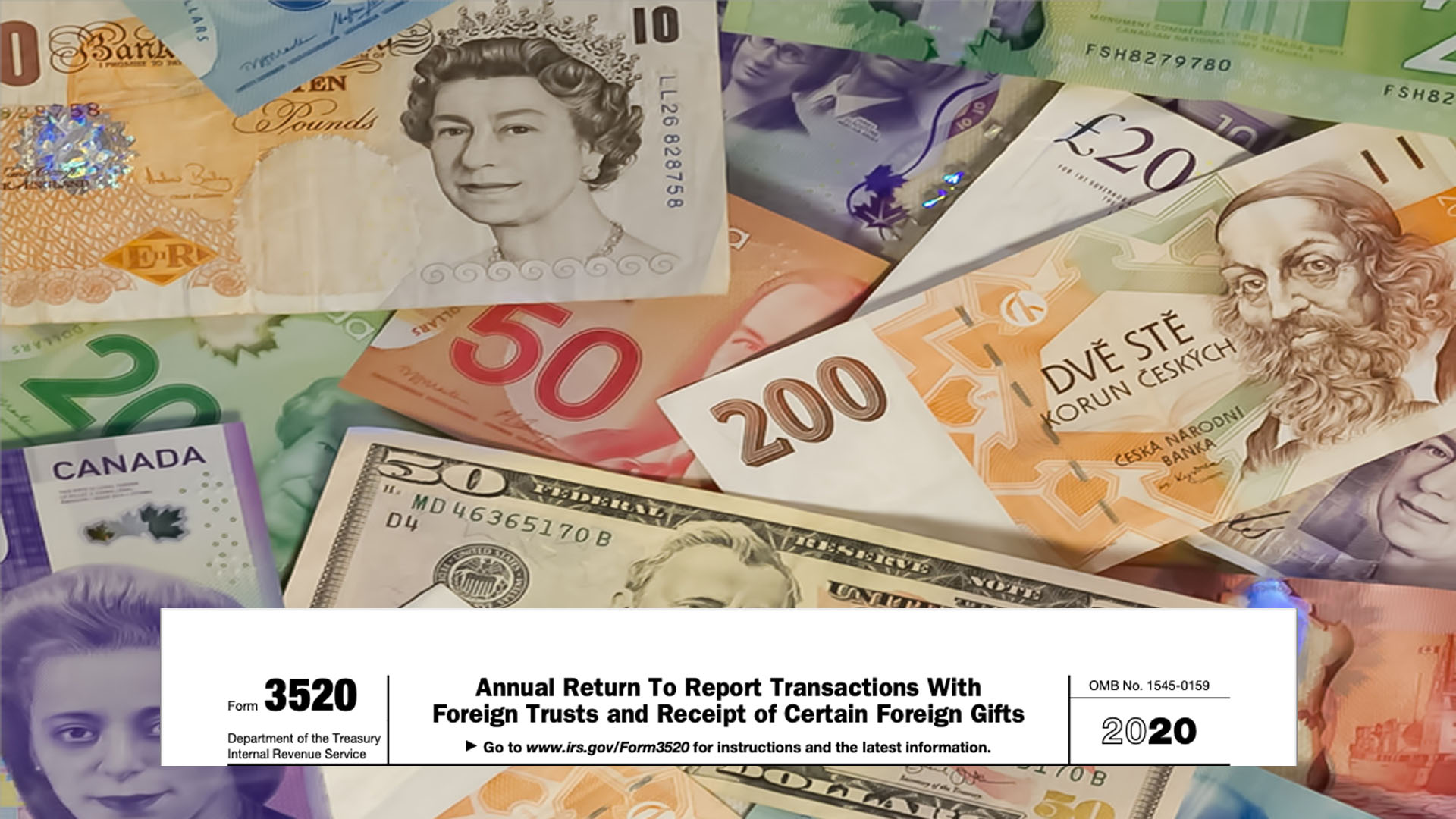Comprehending the Sorts Of Foreign Presents: How to Efficiently Report Them
Recognizing international gifts is vital for organizations going across complicated reporting needs (report a foreign gift). These presents can vary substantially, dropping into monetary and non-monetary groups. Each type presents unique difficulties in appraisal and compliance. Organizations must recognize the ethical and lawful effects included. Effective monitoring and reporting demand clear guidelines and routine training. The concern continues to be: exactly how can organizations ensure they fulfill these responsibilities while preserving openness and responsibility?
Meaning and Summary of International Presents
International presents are things or benefits obtained from international entities, which can consist of people, governments, or companies. These gifts may take different kinds, including substantial products, services, or various other forms useful that hold worth. The value of foreign presents usually exists in their prospective to influence relationships in between people, organizations, or countries. They can be a means of diplomacy, revealing goodwill or fostering teamwork. The acceptance of such gifts raises lawful and ethical factors to consider, especially pertaining to openness and potential conflicts of passion. Recipients have to navigate complex policies that regulate the reporting and approval of international presents, ensuring conformity with both domestic and global regulations. Recognizing the meaning and ramifications of international presents is essential for individuals and organizations to keep stability and accountability in their ventures with foreign entities. This foundational expertise sets the phase for a deeper expedition of the various kinds of international presents and their coverage demands.
Kinds Of Foreign Gifts: Monetary vs. Non-Monetary
Presents from abroad can be categorized into two major types: monetary and non-monetary. Monetary presents include direct economic contributions, such as money or checks, which can greatly influence the recipient's financial standing. These gifts are often straightforward to worth and record, as they involve clear financial quantities.
Non-monetary gifts, on the various other hand, include substantial things such as garments, art work, or mementos, in addition to intangible offerings like experiences or services. While these presents might not have a direct economic effect, they can hold considerable emotional or cultural worth. Valuing non-monetary presents can be more complex, as it frequently calls for assessing the thing's market worth or significance to the recipient. Recognizing these 2 categories is vital for accurate reporting, ensuring compliance with policies preserving and relating to foreign gifts transparency in financial transactions.
Lawful and Moral Ramifications of Finding Foreign Present
While the appeal of obtaining presents from abroad might appear harmless, the moral and legal effects connected with such purchases can be considerable. Receivers have to navigate complicated laws that govern the approval of international presents, as failing to do so may lead to legal consequences, consisting of fines or permissions. Fairly, the approval of presents from international entities can bring about assumptions of preference or conflicts of rate of interest, specifically for people in settings of power or public trust. Such assumptions can undermine the honesty of institutions and deteriorate public confidence. Additionally, the possibility for international impact increases worries relating to national security and the honesty of decision-making processes. Because of this, individuals have to meticulously consider not just the validity of accepting international presents however additionally the wider ramifications on their track records and the establishments they stand for. Ultimately, thoughtful deliberation is important to preserve both lawful conformity and ethical standards.
Coverage Requirements for Foreign Presents

Understanding the coverage demands connected with getting international gifts is necessary for individuals in various fields, particularly those in government and civil service. These demands are made to promote transparency and avoid conflicts of passion. Typically, receivers have to report any type of international presents surpassing a defined financial threshold, which differs by territory.
Paperwork is crucial, as receivers should offer information such as the value, nature, and source of the present, together with the date it was received. Numerous companies need receivers to send their reports within a marked timeframe, often within 30 days of receipt.

Failure to follow these reporting responsibilities can lead to serious repercussions, including legal charges and damages to one's expert credibility. Because of this, understanding the certain guidelines appropriate to one's position and territory is vital for ensuring conformity and preserving honest standards in civil this contact form service.

Finest Practices for Taking Care Of International Presents in Organizations
To effectively manage international gifts within companies, developing clear policies and procedures is critical. Organizations must start by specifying what constitutes an international present and identifying the relevant reporting needs to guarantee conformity with lawful responsibilities. Normal training sessions can enhance team awareness of these plans, advertising a society of openness and diligence.
Additionally, companies ought to carry out a centralized monitoring system to record all foreign gifts received, including details such as the objective, resource, and value. report a foreign gift. This system should assist in routine reviews and audits to evaluate compliance with recognized policies

Often Asked Concerns
Can Foreign Gifts Impact Company Decisions or Relationships?
International presents can notably affect business choices and connections, usually producing perceived obligations or prejudices. Such impacts might impact arrangements, partnerships, and overall business ethics, potentially resulting in disputes of passion or reputational threats.
What Are the Charges for Failing to Record Foreign Present?
Failing to report foreign presents can lead to substantial fines, including fines, disciplinary action, or lawful effects. Noncompliance undermines transparency and might harm reputations, stressing the value of sticking to reporting laws.
Are There Certain Countries With Stricter Gift Rules?
Specific countries, like China and Saudi Arabia, implement more stringent regulations on presents, mirroring social norms and governmental oversight. These regulations may affect international interactions and demand careful factor to consider by people taking part in cross-border partnerships.
Exactly How Can Organizations Educate Worker About Foreign Gift Policies?
Organizations can enlighten workers about foreign present plans through regular training sessions, thorough handbooks, and clear interaction channels. Engaging workshops and real-life look at this website scenarios help enhance understanding, guaranteeing compliance and understanding of prospective moral dilemmas.
What Documentation Is Essential for International Present Coverage?
Documentation for foreign present reporting generally includes an in-depth summary of the present, its value, the contributor's info, purpose of the present, and any type of suitable policies or laws controling the acceptance and reporting of such gifts.
International gifts are advantages or things gotten from international entities, which can consist of organizations, individuals, or governments. Receivers need to navigate intricate regulations that regulate the reporting and approval of international gifts, making sure conformity with both international and residential legislations. Understanding the interpretation and ramifications of international gifts is crucial for individuals and organizations to maintain honesty and responsibility in their transactions with foreign entities. Receivers have to browse intricate laws that regulate the approval of foreign presents, as failing to do so may result in legal Recommended Site consequences, including assents or fines. Stopping working to report international gifts can result in substantial penalties, consisting of penalties, disciplinary action, or legal consequences.